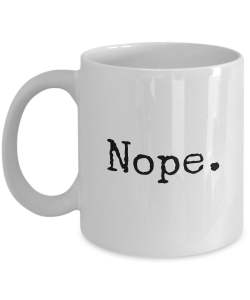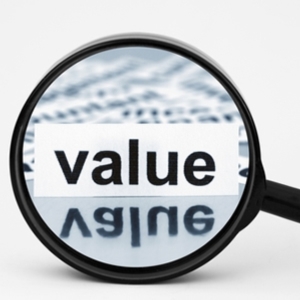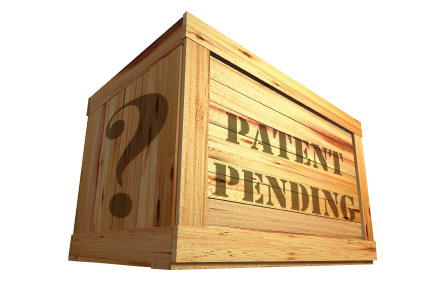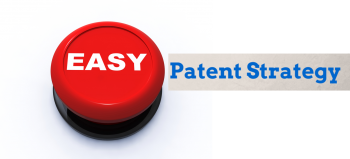 Potential clients frequently ask if they can successfully sell or license their patents; unfortunately, the answer is, far more often than not, “no.” Be it a cultural construct of “inventor exceptionalism,” repeated viewing of late-night infomercials by folks who like to tinker, or lazy journalism that elevates human interest stories about successful inventors over a deep explanation of the realities of generating business success, there exists a belief that “if you build a better mousetrap, the world will beat a path to your door.” The truth is that the only person who is guaranteed to make money from a patent is the patent professional that the client hires to get the work done for them.
This topic is on my mind because I had to, once again, give bad news to someone who was expecting to monetize his patent rights that he believed
Potential clients frequently ask if they can successfully sell or license their patents; unfortunately, the answer is, far more often than not, “no.” Be it a cultural construct of “inventor exceptionalism,” repeated viewing of late-night infomercials by folks who like to tinker, or lazy journalism that elevates human interest stories about successful inventors over a deep explanation of the realities of generating business success, there exists a belief that “if you build a better mousetrap, the world will beat a path to your door.” The truth is that the only person who is guaranteed to make money from a patent is the patent professional that the client hires to get the work done for them.
This topic is on my mind because I had to, once again, give bad news to someone who was expecting to monetize his patent rights that he believed
Why You (Probably) Can’t Sell or License Your Patent
Patent Lawyer Practice Models that Work and Don’t Work for Startups and Small Companies
 Introduction
As someone who works with a wide variety of startups and small companies as the in-house expert interfacing between outside patent lawyers, I have found it helpful to compare and contrast the various legal practice styles encountered, at least because I strive to continuously improve the IP strategy consulting services that I provide my clients. Recently, I have noted that there often appears to be a profound lack of alignment between the desired outcomes that my clients seek from their patent efforts and the business models of many of the lawyers we encounter. These lawyers seek to engage clients like mine, but often they are not able to provide the value we are seeking. Since I have been thinking a lot about this topic lately, I decided to write about my experiences because others may appreciate the context that I can bring
Introduction
As someone who works with a wide variety of startups and small companies as the in-house expert interfacing between outside patent lawyers, I have found it helpful to compare and contrast the various legal practice styles encountered, at least because I strive to continuously improve the IP strategy consulting services that I provide my clients. Recently, I have noted that there often appears to be a profound lack of alignment between the desired outcomes that my clients seek from their patent efforts and the business models of many of the lawyers we encounter. These lawyers seek to engage clients like mine, but often they are not able to provide the value we are seeking. Since I have been thinking a lot about this topic lately, I decided to write about my experiences because others may appreciate the context that I can bring
Startup Patent Strategy: Be Unbreakable
 Several of my current clients are startup companies that understand that, to have real value, their patents must be seen by a third party as meaningful to the opportunity--be it customers, revenue stream, or any other business strategy--that this potential potential partner, licensor, or acquirer seeks to access. Put another way, patents generated by early stage companies that are developing innovative technology must “make it cheaper to go through them than around them.” For these types of patent owners, due diligence conducted by third parties is more than just “kicking the tires” of the patent portfolio; instead, their patents will be examined by an expert team to make sure they won’t "break" just when they’re needed most.
As an initial aspect of this discussion, it should be stressed that not all patents are equal in value. Some patents--and, in my view, this is the
Several of my current clients are startup companies that understand that, to have real value, their patents must be seen by a third party as meaningful to the opportunity--be it customers, revenue stream, or any other business strategy--that this potential potential partner, licensor, or acquirer seeks to access. Put another way, patents generated by early stage companies that are developing innovative technology must “make it cheaper to go through them than around them.” For these types of patent owners, due diligence conducted by third parties is more than just “kicking the tires” of the patent portfolio; instead, their patents will be examined by an expert team to make sure they won’t "break" just when they’re needed most.
As an initial aspect of this discussion, it should be stressed that not all patents are equal in value. Some patents--and, in my view, this is the
Patentability Reviews for Innovations
 Patent professionals can do a better job providing patentability review, or "opinion," services for innovators. As most readers would recognize, a patentability review assesses whether the invention to be claimed will meet the legal requirements for patentability. In the US, this entails an assessment by a patent attorney, which can be based on a formal or informal search, whether the client’s invention is novel and non-obvious over the prior art. The rules by which a patent attorney makes a determination of patentability are well-established and would not be considered controversial by most experienced practitioners. Nonetheless, as an IP Strategist who works exclusively with clients engaged in developing and delivering meaningful innovations to consumers, I know that these entrenched patentability assessment practices deserve retooling for those clients who can be classified as "innovators." To this end, I believe that the way the patent
Patent professionals can do a better job providing patentability review, or "opinion," services for innovators. As most readers would recognize, a patentability review assesses whether the invention to be claimed will meet the legal requirements for patentability. In the US, this entails an assessment by a patent attorney, which can be based on a formal or informal search, whether the client’s invention is novel and non-obvious over the prior art. The rules by which a patent attorney makes a determination of patentability are well-established and would not be considered controversial by most experienced practitioners. Nonetheless, as an IP Strategist who works exclusively with clients engaged in developing and delivering meaningful innovations to consumers, I know that these entrenched patentability assessment practices deserve retooling for those clients who can be classified as "innovators." To this end, I believe that the way the patent
Startup Patent Licensing: Beating the Long Odds
 Achieving meaningful revenue through licensing by startup entrepreneurs can be for all intents and purposes a “unicorn event:” much discussed, but rarely achieved. Notwithstanding this reality, a significant number of startup entrepreneurs who seek to engage me for IP Strategy and patent development consulting assert confidently that their necessity for a patent is based on a business strategy of licensing (or selling) their protected product or technology to an established company.
This is not surprising because it is embedded in the DNA of much of society that “if you build a better mousetrap, the world will beat a path to your door.” Late night infomercials featuring famous people and entrepreneur “hero stories” in the press also bolster this conviction. It is certainly heartwarming and inspiring to believe that an "Average Josephine" can become rich solely on
Achieving meaningful revenue through licensing by startup entrepreneurs can be for all intents and purposes a “unicorn event:” much discussed, but rarely achieved. Notwithstanding this reality, a significant number of startup entrepreneurs who seek to engage me for IP Strategy and patent development consulting assert confidently that their necessity for a patent is based on a business strategy of licensing (or selling) their protected product or technology to an established company.
This is not surprising because it is embedded in the DNA of much of society that “if you build a better mousetrap, the world will beat a path to your door.” Late night infomercials featuring famous people and entrepreneur “hero stories” in the press also bolster this conviction. It is certainly heartwarming and inspiring to believe that an "Average Josephine" can become rich solely on
Startup Patent Strategy: US Patent Non-Publication

Need Broad Patents Fast? Try This.
 That title got your attention, didn’t it? It was meant to. After another successful round of patent application examinations for several clients in the last year, I thought others would like access to my proven patent acquisition methodology. Certainly, there’s a lot more than I can include in this post, and what is presented here should be considered to be only a high level introduction to my process. Moreover, every client requires focused attention to generate the desired patent protection, and not every business scenario mandates this comprehensive approach. But, for those situations where company leadership determines that strong patent protection is a key to achieving the desired business outcomes from investment in innovative products and technology, this methodology is not only recommended, it is required for success. Put simply, if you do the hard work
That title got your attention, didn’t it? It was meant to. After another successful round of patent application examinations for several clients in the last year, I thought others would like access to my proven patent acquisition methodology. Certainly, there’s a lot more than I can include in this post, and what is presented here should be considered to be only a high level introduction to my process. Moreover, every client requires focused attention to generate the desired patent protection, and not every business scenario mandates this comprehensive approach. But, for those situations where company leadership determines that strong patent protection is a key to achieving the desired business outcomes from investment in innovative products and technology, this methodology is not only recommended, it is required for success. Put simply, if you do the hard work
Value-Enhancing Patent Prosecution Strategies (Part 1 of 4)
 In my role as the IP Strategist for a number of companies that do not employ in-house patent counsel, I am charged with making sure that my clients’ patenting efforts are in tune with their desired business outcomes. This means that instead of focusing on the drafting and prosecuting of patent applications that form the basis of most patent attorneys’ practices, I work at the front end of the patenting process to design patent strategies that will enhance my clients’ business value first and foremost. When alignment is created with business goals, subsequent patenting efforts will necessarily result in protection that matters to the value of the company. In this regard, I have a number of tools in my “Patent Strategy Toolbox” that I deploy regularly when developing patent prosecution recommendations. Notably, when I mention these tools to new clients,
In my role as the IP Strategist for a number of companies that do not employ in-house patent counsel, I am charged with making sure that my clients’ patenting efforts are in tune with their desired business outcomes. This means that instead of focusing on the drafting and prosecuting of patent applications that form the basis of most patent attorneys’ practices, I work at the front end of the patenting process to design patent strategies that will enhance my clients’ business value first and foremost. When alignment is created with business goals, subsequent patenting efforts will necessarily result in protection that matters to the value of the company. In this regard, I have a number of tools in my “Patent Strategy Toolbox” that I deploy regularly when developing patent prosecution recommendations. Notably, when I mention these tools to new clients,
UPDATE: Lack of Patent Strategic Focus Results in $100’s Millions in Lost Value
 Last week, an en banc Federal Circuit (that is, the majority of the sitting judges, not just the usual three judge panel), rendered a decision that saved the patent that keeps the ANGIOMAX(R) product from generic competition. In short, the Federal Circuit saved this successful blood thinner medicine from generic competition and, in so doing, saved the proverbial "bacon" of The Medicines Company. Since I wrote about this case about a year ago when the ANGIOMAX patent was invalidated by a three judge Federal Circuit panel for violating the US "on sale bar," I thought it prudent to update the post with this new information.
The purpose of this post is not to summarize the new "on sale bar" rule. Many law firms and commentators have already done so. A good summary can be found here. In short, the law
Last week, an en banc Federal Circuit (that is, the majority of the sitting judges, not just the usual three judge panel), rendered a decision that saved the patent that keeps the ANGIOMAX(R) product from generic competition. In short, the Federal Circuit saved this successful blood thinner medicine from generic competition and, in so doing, saved the proverbial "bacon" of The Medicines Company. Since I wrote about this case about a year ago when the ANGIOMAX patent was invalidated by a three judge Federal Circuit panel for violating the US "on sale bar," I thought it prudent to update the post with this new information.
The purpose of this post is not to summarize the new "on sale bar" rule. Many law firms and commentators have already done so. A good summary can be found here. In short, the law
IP Strategy is Increasing Focus at Innovative Companies: Here’s Why
 After more than 8 years, I can report that IP Strategy is an increasing focus at innovative companies, and there is a solid reason why this is so. By way of background, for many years, I have been part of a small minority of IP experts who advocate that companies desiring to maximize the value of their IP investments re-think the way they seek and obtain patents. In short, I and my IP Strategist peers urge companies to wrest control of their “IP destiny” from their legal service providers who have traditionally been seen as the primary drivers of the patenting process for their clients. Of course, readers of my regular ruminations know that my strongly held view is that “the
After more than 8 years, I can report that IP Strategy is an increasing focus at innovative companies, and there is a solid reason why this is so. By way of background, for many years, I have been part of a small minority of IP experts who advocate that companies desiring to maximize the value of their IP investments re-think the way they seek and obtain patents. In short, I and my IP Strategist peers urge companies to wrest control of their “IP destiny” from their legal service providers who have traditionally been seen as the primary drivers of the patenting process for their clients. Of course, readers of my regular ruminations know that my strongly held view is that “the


